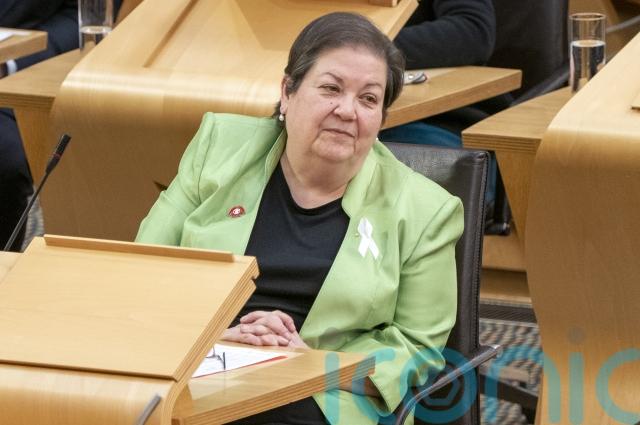
Almost two thirds of cancer patients were not given a written care plan after being diagnosed with the disease, research has revealed.
Such a plan can set out a patient’s needs and goals, what treatment has been planned and what emotional, practical and financial support they could receive.
However, new data from the Scottish Cancer Patient Experience Survey 24 showed 64% were not offered a written care plan – with 8% of patients saying that they did not know or understand what a care plan was.
The survey also revealed that while more than a third (37%) of follow-up appointments with cancer patients were done over the telephone, this rose to 50% for those patients in remote and rural areas.
Hitting out at these figures, Scottish Labour health spokesperson Jackie Baillie insisted: “The SNP must also ensure that patients who need face-to-face support have an opportunity to get it, no matter where they live, and every patient should be given a written care plan.”
She added: “Cancer is challenging enough – the SNP must make sure that everyone battling it gets the help they need.”

According to the survey, cancer patients overwhelmingly rated their care positively, with this the case for 95%.
Only 1% of patients surveyed were negative about their care, while 4% were neutral.
However the survey also found that up to one in five patients of some kinds of cancer were not given a cancer clinical nurse specialist to support them.
While overall 93% of cancer patients said they were given such a named contact, 7% were not, with this rising to 15% for skin cancer patients and 20% for those suffering from urological cancers.
The survey, which 4,540 patients across Scotland took part in, also found that 2% of people did not understand the explanation they were given the first time they were told they had cancer – with this doubling to 4% among people with blood cancers.
The research, published by the Scottish Government, went on to reveal that almost a quarter of patients (23%) said that looking back, they did not fully understand what they were told about the impact cancer and/or their treatment would have on their day-to-day activities.
This rose to three out of 10 (30%) of patients with breast cancer and 28% amongst patients aged between 16 and 64.
Meanwhile 13% of breast cancer patients also said they were not told about any side effects that could affect them in the future – with this higher than the 10% of all cancer patients who said this was the case.
Almost a third (29%) of patients said they were not supported either practically, emotionally or psychologically by charity, voluntary or community groups during their cancer treatment.
Older patients were more likely not to be supported, with the proportion rising to 36% amongst cancer suffered aged 75 and above, while almost half (48%) of those with urological cancer were not supported by such groups.
That comes after almost a quarter (24%) of people said they were not given timely information about groups to could prove support during their treatment – with almost two fifths (39%) saying they were not given such timely information on where they could get support after their treatment.
And almost one in five patients (18%) said healthcare professionals did not give their family or someone close to them all the information needed to care for them at home when they left hospital after their treatment.
Meanwhile just over two fifths (41%) said they would have liked to get information from healthcare staff about the financial help or benefits they might be entitled to.
Health Secretary Neil Gray said: “When we published our Cancer Strategy and the associated Cancer Action Plan in 2023, we set out our aim of improved cancer survival and the provision of excellent, equitably accessible care.
“The fact that 95% of people are positive about their overall experience indicates that we are progressing towards our aim, and towards our ambition of putting people with cancer at the heart of all decisions and actions involving them.”
But he added: “Despite the high overall rating of care experience, we understand that there are still areas in which we can improve further.
“Exploring differences in experience, whether that be overall or at a particular point in the cancer pathway, and considering other factors which may influence experience, will help us identify where we need to focus our efforts further.”
Subscribe or register today to discover more from DonegalLive.ie
Buy the e-paper of the Donegal Democrat, Donegal People's Press, Donegal Post and Inish Times here for instant access to Donegal's premier news titles.
Keep up with the latest news from Donegal with our daily newsletter featuring the most important stories of the day delivered to your inbox every evening at 5pm.